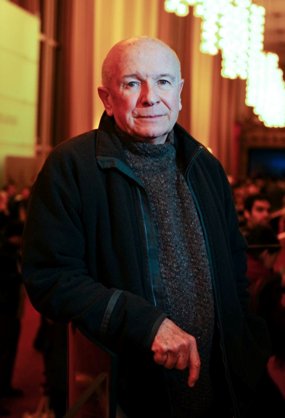Terrence McNally

Story Posted By:
Relationship to the deceased:
Terrence McNally, whose long, varied and prolific career as a playwright, musical librettist, and screenwriter earned him five Tony Awards and an Emmy, died Tuesday.
McNally, once referred to as “the quintessential man of the theater” by actress Zoe Caldwell, died from complications related to the coronavirus, his publicist Matt Polk said. He was diagnosed with lung cancer in 2001 and twice underwent surgery.
While most playwrights since World War II have arrived like comets, creating their signature scripts early in their careers, the arc of McNally’s writing life testified to the riches — especially insight, empathy, and a hesitance to judge flawed people too harshly — that came with maturity.
“A huge part of me is gone. But then it’s not. Terrence wouldn’t like that,” tweeted Broadway legend Chita Rivera, who worked with McNally on numerous projects, including “Kiss of the Spider Woman.” “He helped to make me who I am as a person. He is the epitome of love and friendship. Only God knows how much I will miss him.”
Hamilton” creator Lin-Manuel Miranda shared his own tribute on social media: “Heartbroken over the loss of Terrence McNally, a giant in our world, who straddled plays and musicals deftly. Grateful for his staggering body of work and his unfailing kindness.”
McNally earned his first Broadway writing credit at age 23 and continued steadily from there into his 30s, establishing a reputation as an edgy and talented playwright and farceur who consistently challenged and mocked authority during the Vietnam War era. But McNally’s streak of signature plays — the ones that won him awards and brought him to the front rank of American playwriting — didn’t begin until 1987, the year he turned 48.
“Frankie and Johnny in the Claire de Lune” (1987), “The Lisbon Traviata” (1989), “Lips Together, Teeth Apart,” (1991) “A Perfect Ganesh” (1993), “Love! Valour! Compassion!” (1994) and “Master Class” (1995) may not qualify as landmarks with near-universal recognition and acclaim among theater lovers — as has been the case with the best works of some of McNally’s more famed contemporaries, such as Edward Albee, August Wilson, Tony Kushner, David Mamet and Sam Shepard.
But the plays he wrote during his extended creative high tide were funny, warm, poignant, life-affirming and popular.
In the shadow of the AIDS epidemic, McNally, who was gay and in 2000 lost longtime partner Gary Bonasorte to the disease, met the demands of that critical time with a warmer, more embracing vision than he’d shown in his first quarter-century of work.
He won best-play Tonys in 1995 and 1996. The first was for “Love! Valour! Compassion!,” in which eight gay men spending holiday weekends together one summer under the shadow of AIDS have their bonds tested and affirmed. He won again with “Master Class,” a loving but hardly fawning portrayal of opera diva Maria Callas, which became a meditation on the extreme commitment and sacrifice exacted from those compelled to reach for “When I’m writing, I try not to think in terms of themes,” McNally told the New York Times in 2004. “But I think I write about the difficulty of people connecting as they’re trying to find hope, trying to find their way to real love and commitment.”
McNally disliked being described as a gay playwright, dismissing it as a reductive label, especially since his subject matter was hardly limited to gay life. Still, it was a subject he took on from early in his career and approached with both anger and tenderness starting in the late 1980s.
“I think I wanted to write about what it’s like to be a gay man at this particular moment in our history,” he wrote in a preface to the published text of “Love! Valour! Compassion!”
“I think I wanted to tell my friends how much they’ve meant to me. I think I wanted to tell everyone else who we are when they aren’t around,” he added. “I think I wanted to reach out and let more people into those places in my heart where I don’t ordinarily welcome strangers.”
Growing up in Corpus Christi, Texas, McNally fell first for opera. After winning notice as a playwright, he became a regular panelist on a quiz show that aired during weekly radio broadcasts of the Metropolitan Opera. McNally’s lifelong love of music, fueled by massive emotion as well as his ability to deal with complex stories, positioned him to write Tony-winning books for two musicals far outside the feel-good, romantic Broadway norm
the greatest artistic heights.
